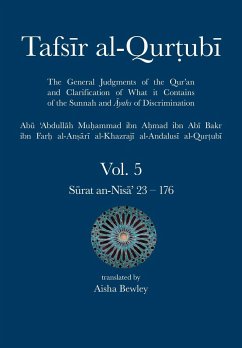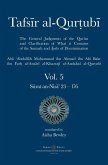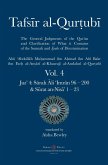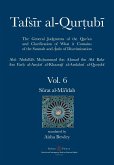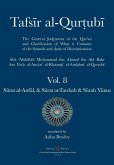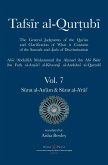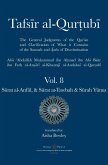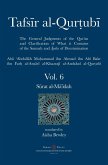The tafsir of al-Qur¿ubi is perhaps one of the most compendious of them all and is certainly among the most famous. As its title, al-Jami' li A¿kam al-Qur'an - The General Judgments of the Qur'an, suggests, its main focus is on the rulings and judgments to be found in the Qur'an. However, in the course of doing that, al-Qur¿ubi examines all the relevant sciences necessary, such as the ¿adith pertaining to the ayahs, events in the sirah, what the Companions, their Followers and other noted people of knowledge said about the ayahs, essential aspects of Arabic etymology, syntax and usage, copiously illustrated by examples, and much more. In this volume, comprising the bulk of Surat an-Nisa' - from ayats 23 - 176, there are many matters to do with the rights of women, marriage and divorce, marital relations and disputes and their resolution, and the laws of inheritance, but also jihad, a key ayah on governance, hypocrisy and iman, and about 'Isa the son of Maryam, peace be upon him, and the People of the Book.
Hinweis: Dieser Artikel kann nur an eine deutsche Lieferadresse ausgeliefert werden.
Hinweis: Dieser Artikel kann nur an eine deutsche Lieferadresse ausgeliefert werden.

